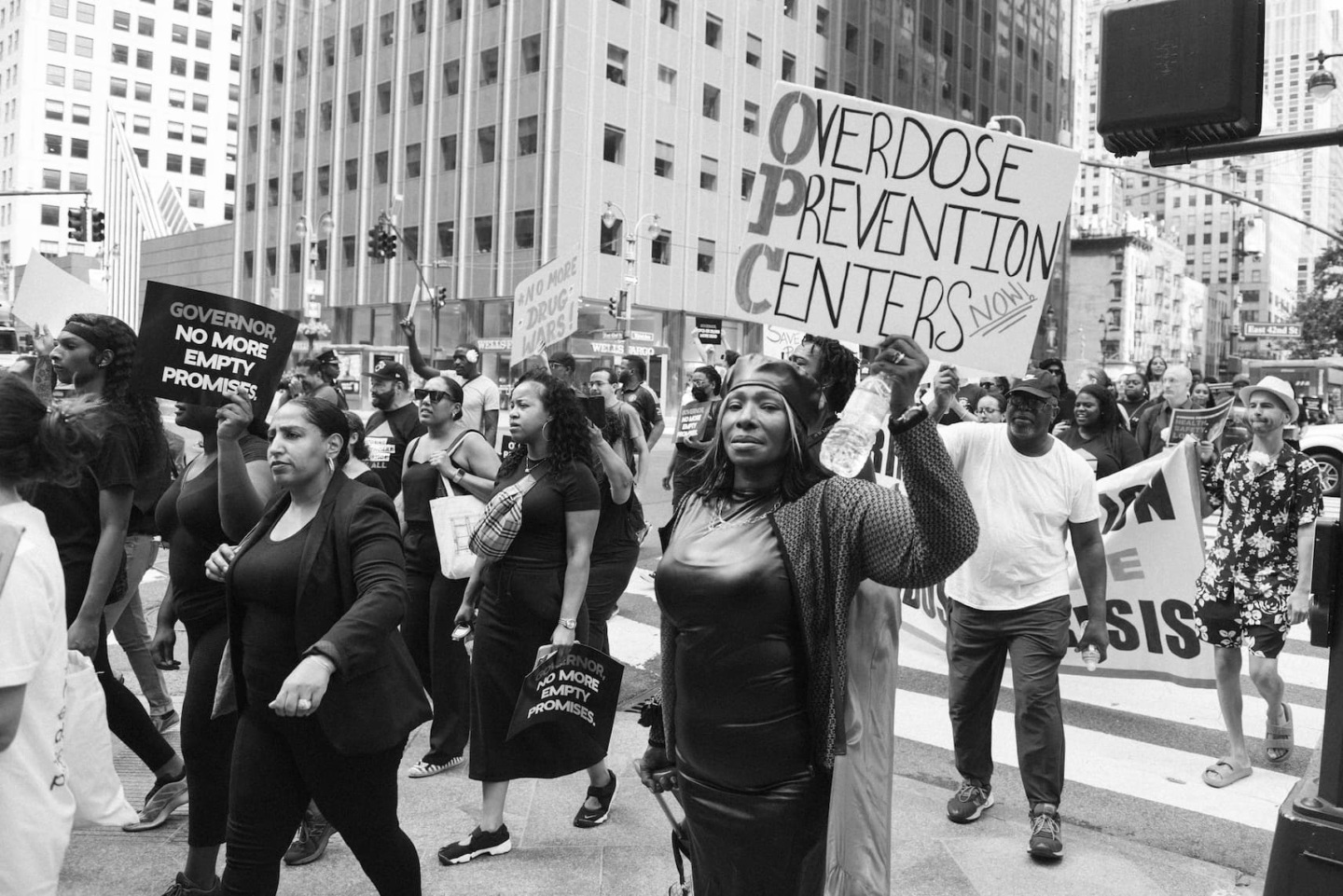
Credit: Megan Cencula

Credit: Megan Cencula
Since 2000, 1.1 million people in the U.S. have died of a preventable overdose, with nearly 110,000 lives lost to preventable overdoses in 2023 alone. All the while, we have a proven, life-saving public health intervention right in front of us: overdose prevention centers (OPCs). OPCs are health care settings where people can consume their own drugs with trained staff available to intervene if an overdose occurs. Now that Vermont, Rhode Island, Minnesota, and New York City have authorized and/or funded OPCs, demand for OPCs is growing across the nation.
The Drug Policy Alliance (DPA) worked in partnership with a community of people and organizations from across the nation to lay the groundwork for Overdose Prevention Centers National Solidarity Week. In August, community partners organized Solidarity Week events across 15 states — California, Colorado, Delaware, Illinois, Maine, Maryland, Massachusetts, Missouri, New Jersey, New Mexico, New York, Pennsylvania, Rhode Island, Texas, and Vermont. Designed to build local power and generate momentum for OPCs, the events featured a range of impactful actions—from rallies and marches to vigils, tribute walks, and even mock and pop-up OPCs. Events were held August 25th to International Overdose Awareness Day on August 31st.
In this powerful display of solidarity, harm reduction workers, people who have lost loved ones to overdose deaths, policy makers, health leaders, service providers, and people who use drugs united to show their support for OPCs and advocate for city and state leaders to champion their authorization and expansion. Together, we issued the following demands:
Throughout National Solidarity Week alone, over 1,300 people (and counting) signed on in support of our collective demands.
National Solidarity Week kicked off with a virtual press conference which highlighted the critical role of OPCs through diverse perspectives, uniting public health leaders, policymakers, law enforcement allies, and service providers in their advocacy for these life-saving spaces. The press conference featured Congresswoman Bonnie Watson Coleman; Brandon Marshall, PhD (Professor of Epidemiology at the Brown University School of Public Health and Founding Director of the People, Place, & Health Collective at Brown University); Laura Thomas, MPP, MPH (Senior Director of HIV & Harm Reduction Policy at San Francisco AIDS Foundation); Rebecca Blair (Director of Strategic Initiatives at Fair and Just Prosecution); and Kellen Russoniello, JD, MPH (Director of Public Health at Drug Policy Alliance).
The rest of the week was packed with local events.
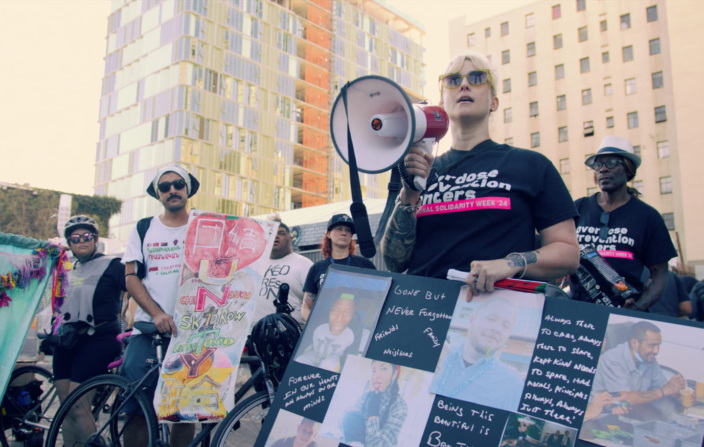
California advocates and service providers hosted five events during National Solidarity Week: Youth Overdose Awareness Event and a Black/AA Overdose Awareness Event in San Francisco, an Overdose Awareness Memorial in Venice, a Community March and Rally through Skid Row, and a Harm Reduction Pop-up in West Hollywood. These events were held in honor of lives lost, with the goal of uniting communities and increasing education around overdose prevention and harm reduction.
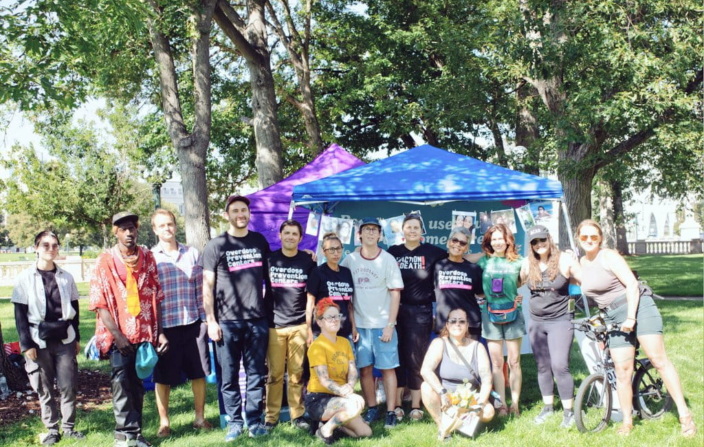
Harm reduction advocates set up Colorado’s first ever pop-up OPC in Denver’s Civic Center Park. The pop-up served 15 participants, handed out 69 kits of naloxone and 215 fentanyl testing strips, connected 2 people to medication assisted treatment, and connected 2 people to peer support services, making strides in overdose prevention and community health support.
Impact Life in Wilmington, Delaware hosted a Harm Reduction Conference that included conversations on the importance of OPCs and featured a mock OPC to offer participants a hands-on understanding of these life-saving services and their importance in harm reduction.
Throughout National Solidarity Week, The Porchlight Collective SAP made overdose prevention services available to the greater STL Metro East Area. These events prioritized the health, dignity, and safety of people who use drugs in the Greater STL Metro East and beyond.
Illinois Harm Reduction & Recovery Coalition and Healthcare Alternative Systems (H.A.S.) hosted a round table panel, created a mock overdose prevention site, and offered harm reduction resources. These efforts built momentum towards HB2, legislation to legalize a pilot OPC in the state.
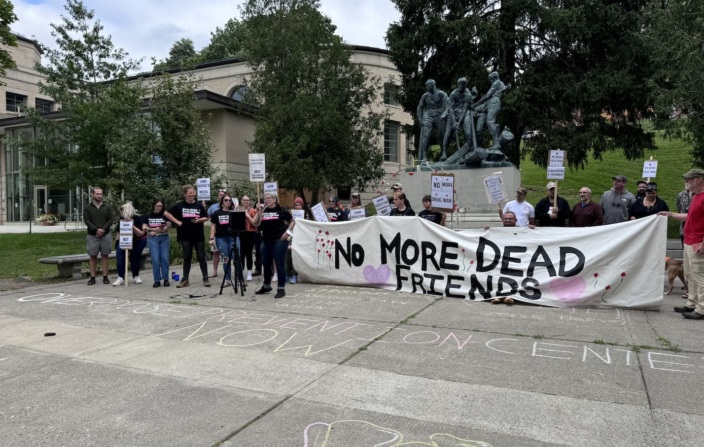
Mainers gathered for a rally to mourn loved ones lost to overdose and urged the Maine State Legislature to authorize OPCs. Featuring directly impacted individuals, state legislators, advocates, and service providers, the rally built on the momentum surrounding the legislative campaign to establish OPCs in the state.
The BRIDGES Coalition held an OPC demonstration two doors down from SPARC, A Center for Women. The event welcomed and educated SPARC participants and community members on the importance of OPCs. The BRIDGES Coalition further amplified this message with a banner drop in Baltimore City.
In St. Louis, MoNetwork hosted a tribute walk to honor friends and family members lost to preventable deaths. Participants brought lightly used shoes for a remembrance display and later donated them. Narcan was made available to those in attendance to highlight the ongoing community fight against the overdose crisis.
The Kind Collective held a gathering in Old City Trenton to honor lives lost to preventable overdose deaths. The event offered a space to grieve, share stories, and learn about OPCs and harm reduction. The gathering was followed by a solidarity walk through all four wards of the City of Trenton, offering harm reduction education and overdose prevention training.
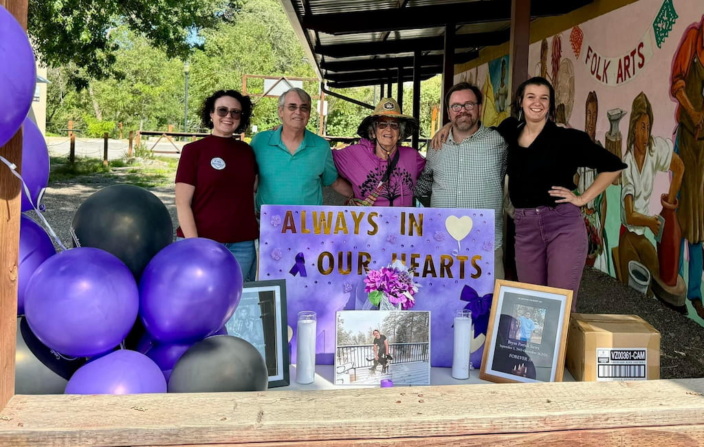
In Silver City, the New Mexico Recovery Coalition hosted community members at a screening of “Untreated & Unheard: The Addiction Crisis in America.” The screening was followed by a group walk to Pocket Park in honor of lives lost to overdose.
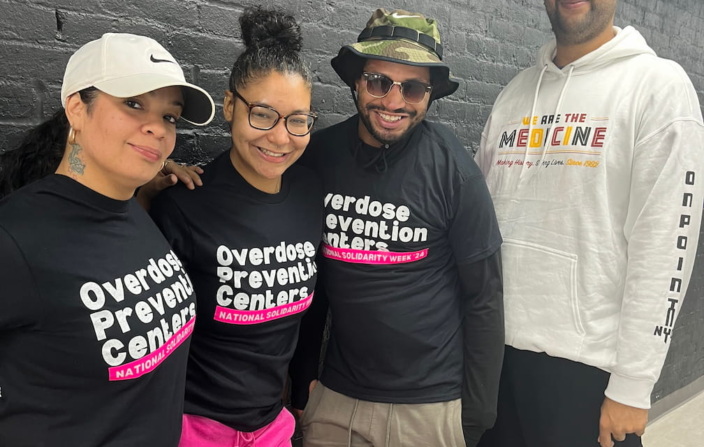
OnPoint NYC held rescue breathing trainings, a community BBQ, and a mural memorial unveiling at their East Harlem and Washington Heights sites. Participants, staff, and community members honored their loved ones lost to the overdose crisis by adding their names to the new murals.
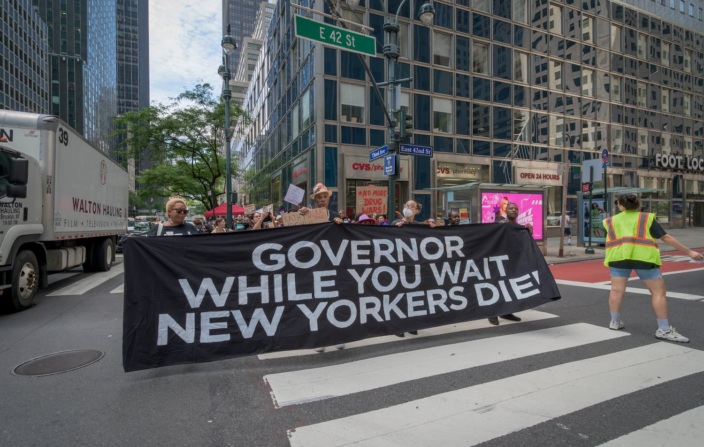
Drug Policy Alliance, VOCAL-NY, and Housing Works held a rally outside of Governor’s office to demand leadership take politics out of public health and implement solutions like accessible housing, non-punitive services, harm reduction infrastructure, and OPCs. Organizers laid 19 body bags outside of the Governor’s office to represent the 19 New Yorkers lost to preventable overdoses each day.
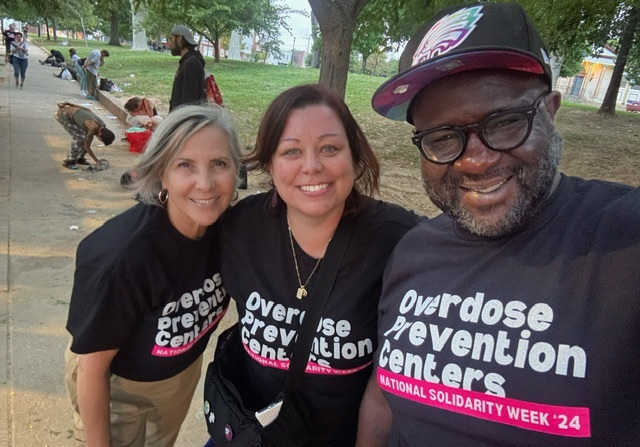
Community Liver Alliance, a collective of harm reduction advocates and organizers, held a Walk in Remembrance to McPherson Square Park to build awareness for lives lost to overdose in one of the hardest hit communities in Philadelphia.
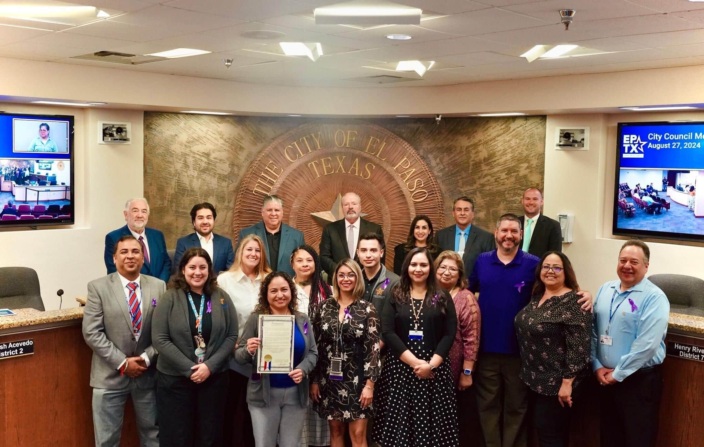
El Paso Harm Reduction Alliance organized a blessing of community members and all lives lost to overdose, a presentation of life with substance use disorder, a candle lighting ceremony, and the opportunity for community members to share their thoughts and stories. The city and county of El Paso then read EPHRA’s proclamation designating August 31st as the day for Overdose Awareness.
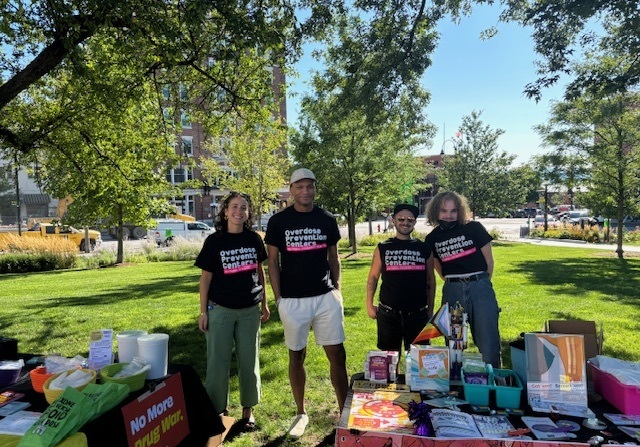
Team Sharing Vermont, an organization of parents who have lost a child to substance use disorder, held a gathering in Burlington to honor loved ones lost to preventable overdose deaths. The event also celebrated legislators and their constituents for overriding the Governor’s H.72 veto to authorize an OPC and built community surrounding the opening of Vermont’s very first OPC in Burlington.
As the overdose crisis rages on, we will keep fighting to save lives and reduce harm for people who use drugs by opening, operating, and expanding OPCs across the U.S.
